Whether you’re a cat or a dog lover, pets are much-loved members of the family and make great companions. That said, they also come with a lot of responsibility. But if you are moving to the UK, this article explains all you need to know about keeping pets in the country, including:
- Pet culture in the UK
- Acquiring pets in the UK
- Bringing or importing pets into the UK
- Pet passports in the UK
- Insurance for pets in the UK
- Healthcare for pets in the UK
- Pet shops in the UK
- Services for pets in the UK
- Lost pets in the UK
- The costs of keeping pets in the UK
- Selling a pet in the UK
- Useful resources
Pet culture in the UK
There’s no doubt about it – Brits love their pets and tend to value them as pampered members of the family. As of 2021, there were 34 million pets in the UK, including an equal split of cats and dogs, at 12 million each. There were also 3.2 million small mammals such as guinea pigs and hamsters, three million birds, 1.5 million reptiles, and five million aquaria. The demand for pets also surged during the COVID-19 pandemic, with a total of 3.2 million UK households acquiring one during this period.

Fortunately, animal welfare is a top priority in the country, which remains one of the most dog-friendly nations in the world. Indeed, the UK ranks 4th in the 2022 Dog-Friendly Country Index; which examines factors such as animal rights, pet-friendly hotels, veterinarian availability, and the risk of rabies in 51 countries. Furthermore, there are numerous high-profile organizations that offer adoption services and help animals in need; this includes the Battersea Dogs and Cats Home and the RSPCA.
UK pet laws
Animal welfare laws in the UK
You must be 16 years old to own a pet in the UK. You are also responsible for that animal’s welfare, and the Animal Welfare Act 2006 places a duty of care on animal owners to ensure that they are meeting their pet’s basic needs. As a result, you could be given an unlimited fine or be sent to prison for six months if you are found to be neglecting or abusing the animal in your care.
Pet vaccinations in the UK
While you don’t have to vaccinate your dog or cat if it is not traveling abroad, it’s still strongly advised. There are also core vaccines suggested for dogs, cats, and other pets. Notably, most puppies or kittens will already be vaccinated before you can bring them home. Nevertheless, it’s best to agree on a suitable vaccination schedule for your pet with your vet. Some animal charities will also provide vaccinations free of cost or at a discounted rate for those who cannot afford them.
Dog walking
One of the great joys of having a dog is being able to take them on daily walks. Generally speaking, you can walk your dog off the leash in most public places in the UK. This includes parks and wooded areas. However, there are restrictions in certain areas such as near roads, car parks, children’s play areas; plus certain ponds or streams at some times of the year. So you will need to check signs in your local area to make sure you obey the rules.
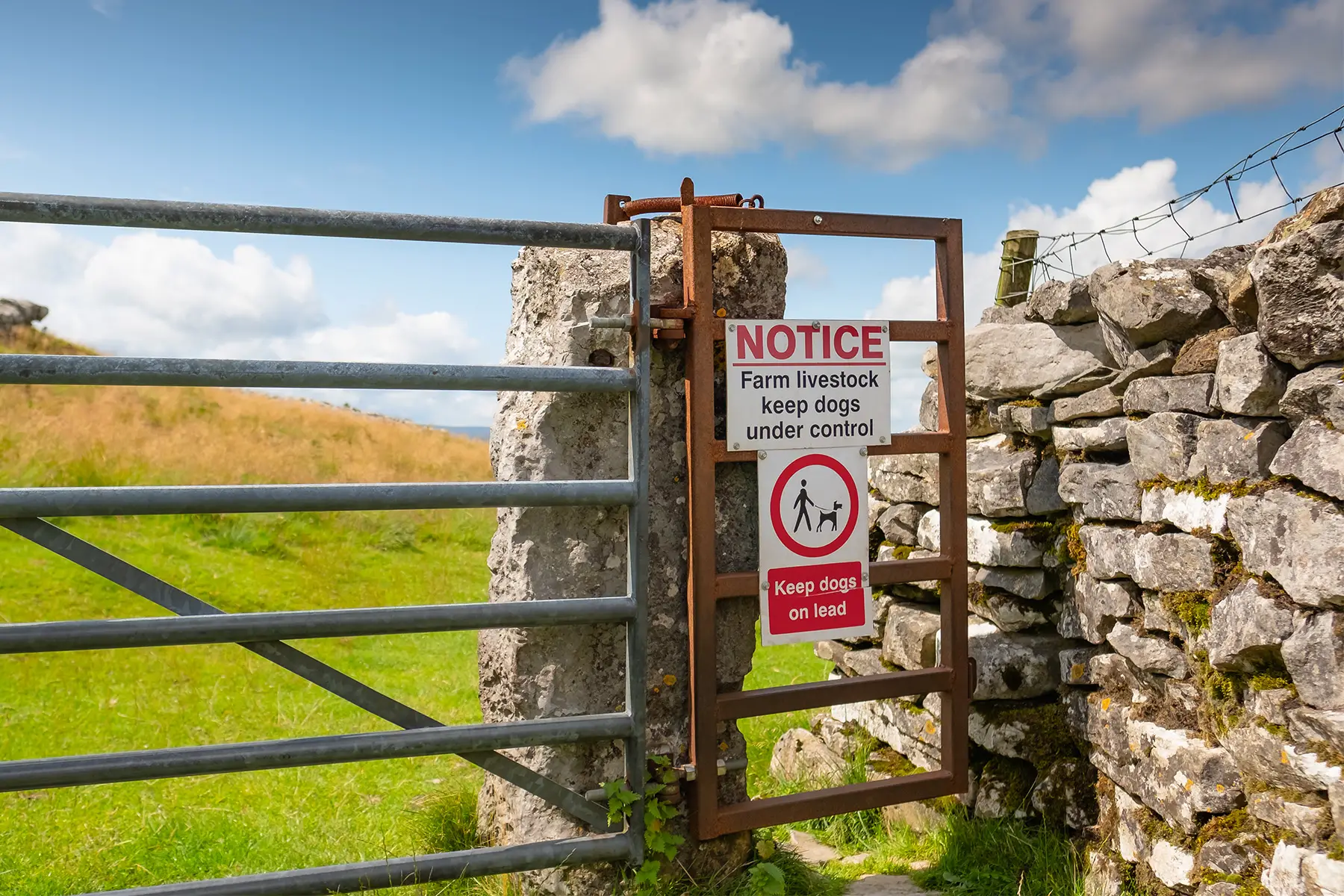
Cats, on the other hand, are allowed to roam freely outside of their homes, trumping dogs in the freedom stakes. That said, some organizations advise cat owners to keep their feline friends indoors for their safety. This is particularly true of certain breeds that are more accustomed to sitting on cushions than running up trees. If this applies to you, the RSPCA provides some great tips on how to look after house cats.
Acquiring pets in the UK
In general, domestic animals don’t require a license in the UK. However, there are some exceptions. For instance, certain types of animals, such as wild cats, wild dogs, or marsupials, require a license.
While you don’t have to register your pet, registration and microchipping can help locate a lost animal. In fact, all dogs in England must be microchipped by the time they are eight weeks old. Failing to do so can also result in being fined up to £500.
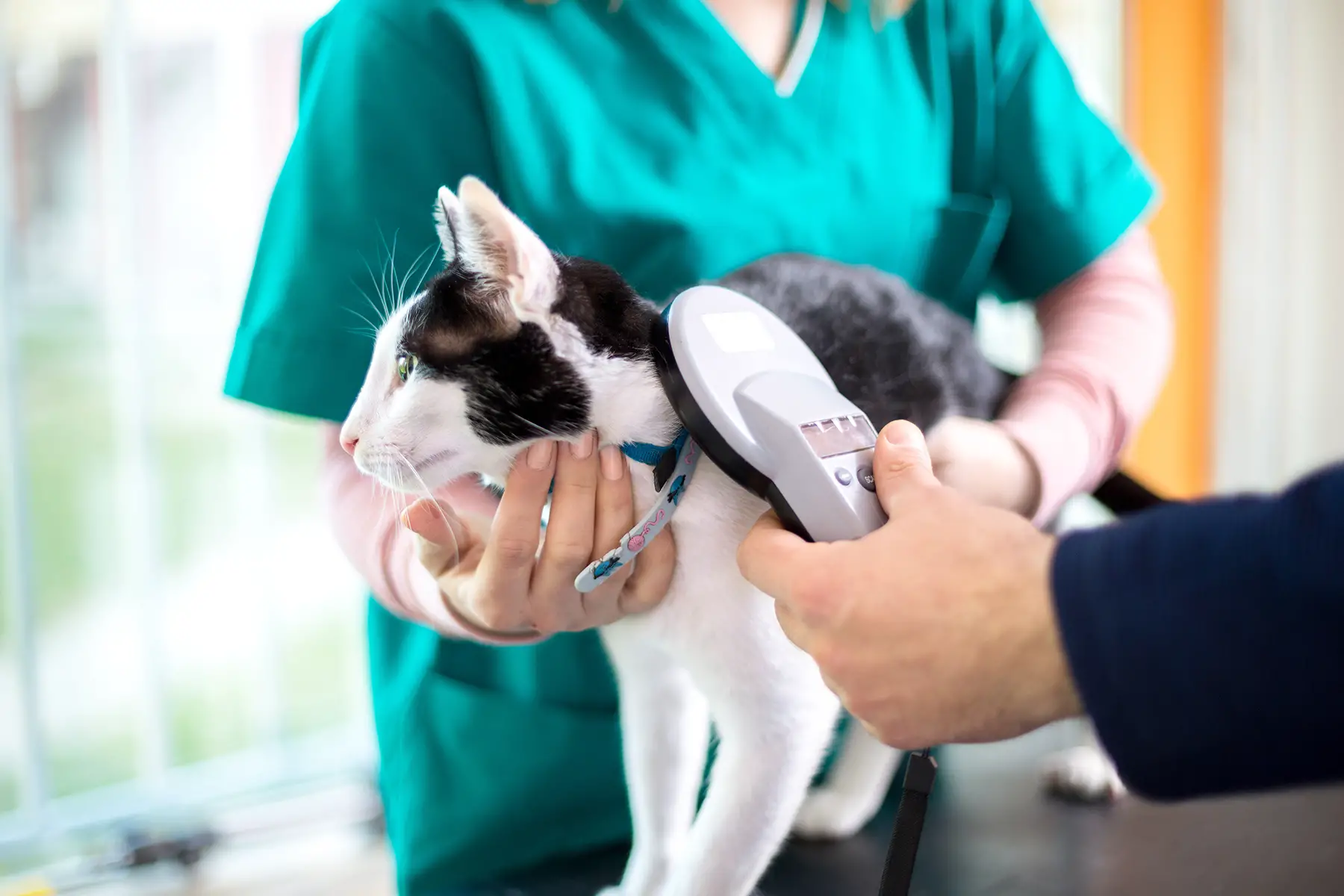
Some organizations, such as the Dogs Trust, Blue Cross, and the Battersea Dogs and Cats Home, will microchip your dog for free. However, typically, your vet will do it for a small fee. Just bear in mind that different rules apply in Scotland and Wales.
Cats, on the other hand, don’t need to be microchipped in the UK. That said, it is still strongly advised. And while it’s not mandated by law, it is recommended to neuter or spay both cats and dogs to avoid adding to the animal population.
Buying pets in the UK
There are many options for buying a pet in the UK, from finding a responsible and licensed breeder to checking local advertisements in the local newspaper or online. However, you should be extremely careful and do some thorough research before buying any animal, especially if you are using the internet. Fortunately, though, there are plenty of resources available for finding healthy dogs and cats.
The UK government advises people looking for pets to always know where the animal comes from and where it was born. This is to combat the illegal trade in animals; particularly dogs and cats which are smuggled into the country from abroad.

Selling pets is a lucrative business, and unfortunately, there has been an increase in puppy mills and kitten farms in recent years. Sadly, many of these animals are being bred in appalling conditions with very little, if any, concern for their welfare.
As a result, buying a puppy or kitten from one of these places could mean that you get one with serious and long-term health issues. This can be very upsetting and expensive and difficult to treat. With this in mind, the government suggests using a puppy contract or kitten checklist to ensure that you buy a healthy companion that has been responsibly bred.
The cost of buying a pet
Naturally, the cost of buying a pet in the UK varies hugely, depending on the animal and its age. For instance, if you’re looking to buy a puppy, certain breeds can command thousands of pounds. Meanwhile, cat breeds can start in the low hundreds and rise from there. Either way, the government suggests using a puppy contract or kitten checklist to ensure that you buy a healthy companion from a responsible breeder.
Typically, you can contact breeders directly, arrange to visit an animal and pay a deposit for the one you would like to reserve. But again, always do your research and look for breeders that will ask you about your lifestyle and will be honest about an animal’s health and temperament.
You can also find registered breeders through The Kennel Club and the Governing Council of the Cat Fancy.
Adopting a pet in the UK
Thousands of once-loved pets need a new home – and this number is on the rise. Sadly, research shows that while 3.2 million UK households bought a new pet during the COVID-19 pandemic, around 5% of them have already had to give them up and this figure increased to 11% among families.
If you are looking to rehome an animal, it’s easy to find an organization near you that can help. Many of the national animal charities will have local branches, and the best way to find them is often to search online.

If you would like to adopt a pet, on the other hand, there are some specific factors that come into play, such as having access to outside space, the age of any children, and your type of job and hours. Shelters will ask applicants for personal details and will often arrange a home visit before allowing an adoption to take place. Ultimately, they want to ensure that the welfare of the animal is given priority, and this can sometimes clash with what potential owners want.
Great places to start
You can contact some of the better-known organizations to find a pet needing a new home. These include:
- RSPCA – the largest animal welfare charity in the UK
- Battersea Dogs and Cats Home – a high-profile animal rescue center located in south London
- Dogs Trust – the UK’s largest dog welfare charity
- Blue Cross – a well-known charity that helps to rehome animals, including horses
- Wood Green – a charity that helps thousands of pets find a home every year
- Cats Protection – the UK’s leading cat welfare charity
Notably, if you are looking to adopt a pet through a shelter, you will only be asked to pay an adoption fee, which can range from about £100 for a cat to over £250 for a puppy.
Fostering a pet in the UK
Some of the larger animal welfare charities (as listed above) will need some of their pets to be fostered while they wait for a new home, or in the event of legal proceedings. If you are interested in fostering a pet, it’s worth checking with a local branch to see if there are animals needing foster care.
You will need to apply as a volunteer to foster any animal, and the length of time varies. The RSPCA has a short guide for those interested. Meanwhile, Cats Protection runs Lifeline, a pet fostering service for families fleeing domestic abuse.
Bringing or importing pets into the UK
Pet immigration rules and restrictions
If you’re planning to bring a pet to the UK, it is essential to plan ahead and have all your documents in order. The steps will vary depending on which country you are coming from. For instance, the process is more complicated if the country is not on an approved list for a health certificate or pet passport. In this case, you will need to get additional blood tests that require waiting three months before travel.
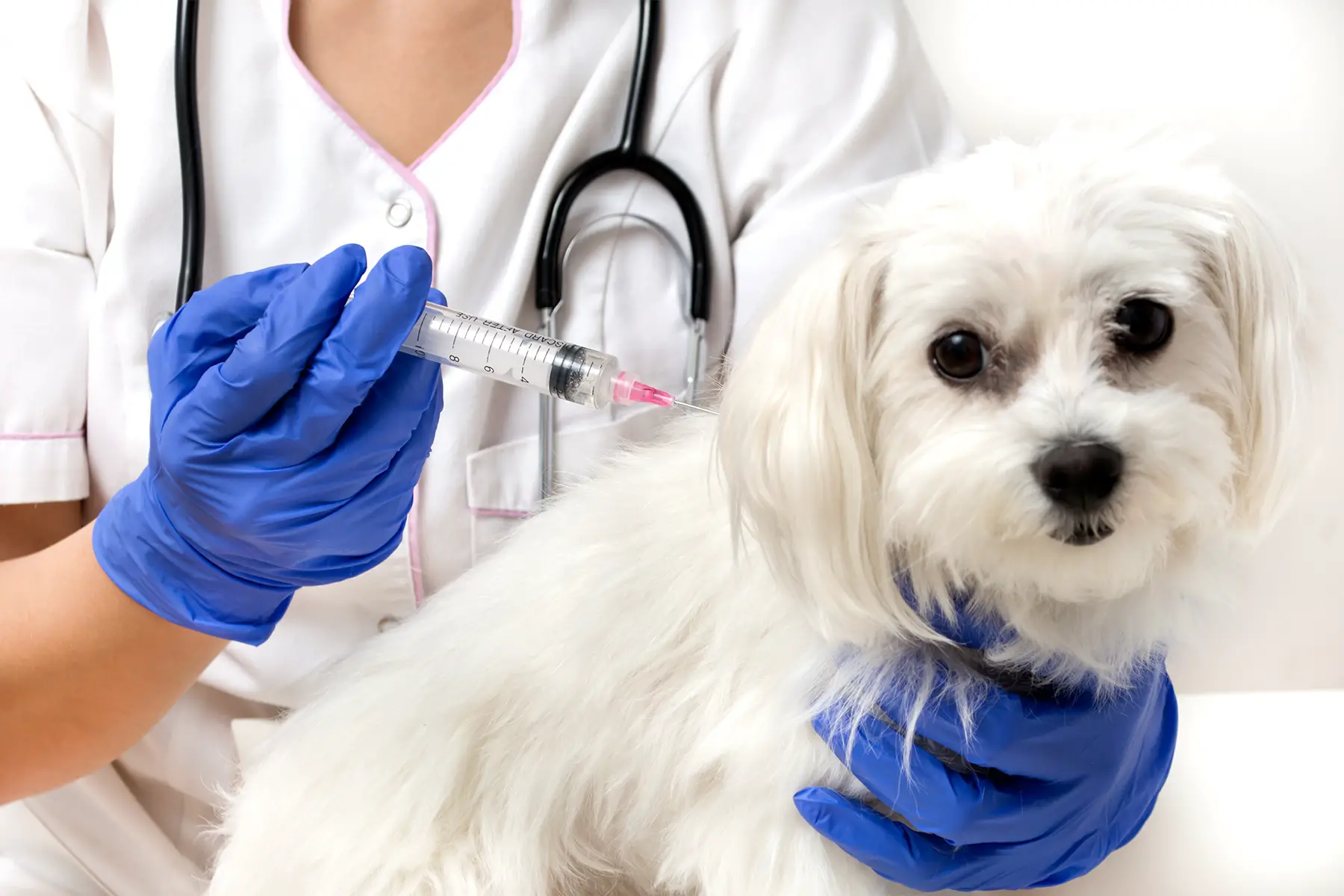
You can bring your dog, cat, or ferret to the UK provided it:
- is microchipped by a vet, vet nurse, or trained professional
- has a pet passport or health certificate (originals only) from a listed country
- is vaccinated against rabies
- has had a blood test if coming from a country not listed (rules apply)
You will also need to make sure that your dog has had a tapeworm treatment approved in the country of origin before entering Great Britain, no less than 24 hours, or more than five days, before travel. However, this does not apply if you are coming from Finland, Ireland, Northern Ireland, Malta, or Norway.
Places further away
Importantly, if you are traveling to the UK with a cat from Australia, you will also need to get a certificate from the Australian Department of Agriculture proving that your cat has not been exposed to the Hendra virus in the 60 days before you travel. Additional rules also apply to dogs and cats coming from Malaysia.
Notably, while you can travel on more routes with a guide or assistance dog than with a regular dog, the same immigration rules apply. You can read more about this on The Guide Dogs for the Blind Association website.
It is also important to be aware that certain types of dogs are banned from entering the UK under any circumstances. These include:
- Pit Bull Terrier
- Japanese Tosa
- Dogo Argentino
- Fila Brasileiro
Traveling with pets
Unless you are coming from a UK country, the Channel Islands, the Isle of Man, or Ireland, there are restrictions when it comes to entering Great Britain with your pet. For example, when bringing your pet into England or Scotland, you can only use the routes and pet carriers that are approved by the Animal and Plant Health Agency. However, there are no approved routes into Wales.
Before making any travel plans, make sure to check the list of approved airports and airlines you can use, as well as the approved sea and rail routes. If you are using a travel company, you can check with them to make sure that you are using an approved route and following all the rules.
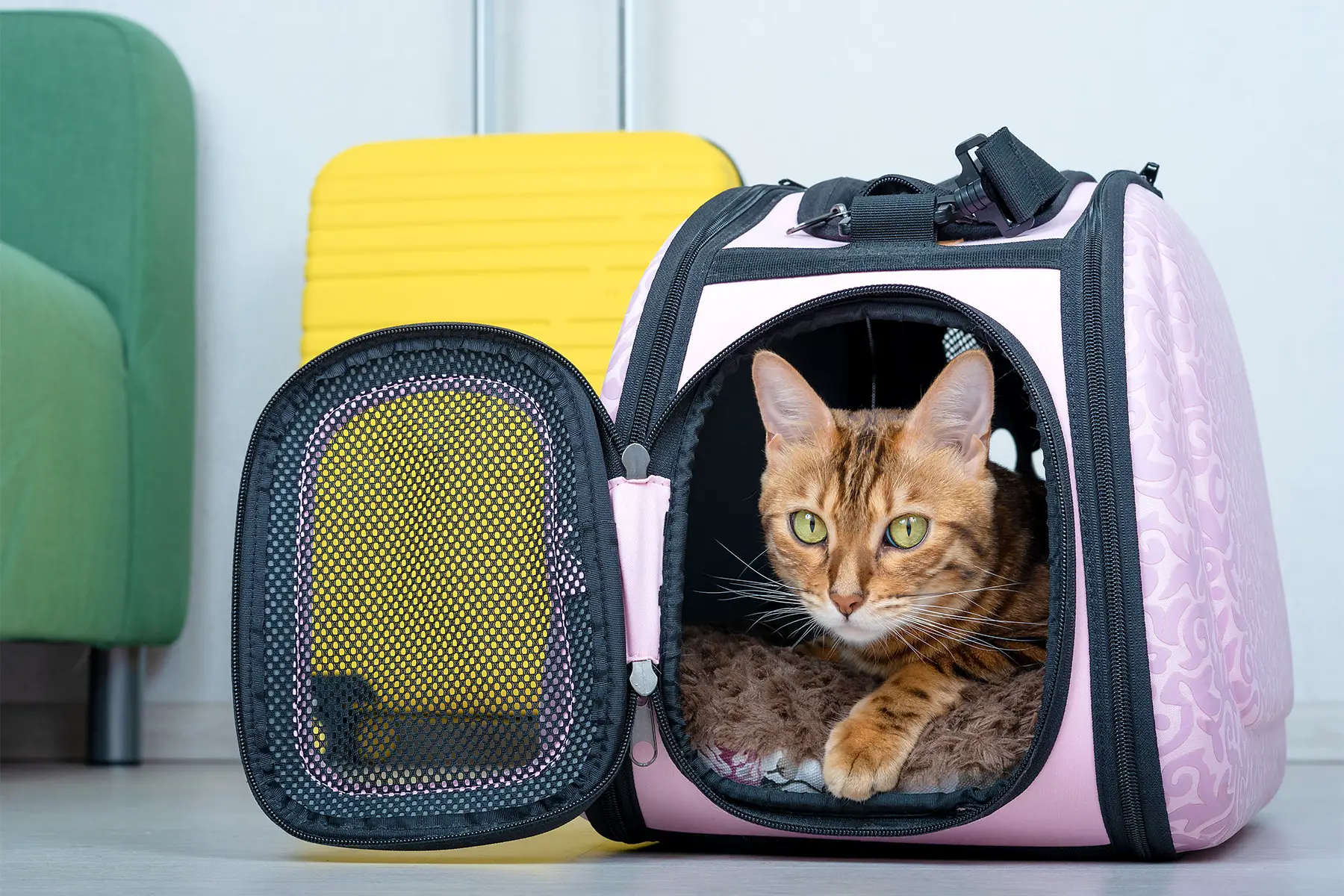
The International Airline Transportation Association (IATA) regulates live animals traveling worldwide. Some airlines will allow your pet to travel in the cabin if it is in an airline-compliant carrier that fits under your seat. Otherwise, dogs and cats must travel as checked baggage in the cargo hold. The IATA provides guidelines that you should read in advance of any flight, including container sizes and weights.
If you are not on the flight with your pet, you might be able to check it in and pick it up through a pet transportation service. As you would expect, there are many pet relocation companies that will handle all the necessary paperwork and transport. Some of the leading companies include:
- Airpets – conveniently located near London Heathrow, they specialize in importing pets into the UK and 100 destinations worldwide
- Animals Away – a United States-based company that has been shipping animals all around the world since 1995
- PBS Pet Travel – has been transporting pets around the world since 1989
- Starwood Animal Transport – a leading animal transportation service based in the UK
Pet quarantine rules in the UK
While no one wants their pet to end up in quarantine, there are circumstances in which this is unavoidable. For instance, if your pet is a dog, cat, or ferret, it will end up in quarantine if it didn’t meet all the pet travel rules. Furthermore, you can only arrive at certain ports or airports with a pet if it has been put in quarantine.
To arrange this for your pet, you will first need to book a carrier and premises that are authorized by Defra (The Department for Environment, Food and Rural Affairs). You will also need to obtain a license from the carrier and premises you use. And finally, you will be issued a rabies cargo sticker which you will need to show to the company transporting your pet.
You are responsible for all quarantine costs and these vary depending on which premises you choose. Costs are about £200 per month for cats and £300 for dogs.
Your pet will need to stay in quarantine for four months or until it meets the pet travel rules. You can also decide to send it back to the country it came from. If you are traveling with a rodent or rabbit, it will need to be put in quarantine unless it is coming from an EU country and has been there for at least four months.
Pet passports in the UK
As of January 2021, pet passports issued in Great Britain are no longer valid for entering Europe or Northern Ireland with a cat, dog, or ferret. Instead, you will need to have an animal health certificate. An official veterinarian (OV) needs to sign the certificate no more than 10 days before you are going to travel.
Importantly, the certificate will only be valid for four months and will likely cost about £150. However, this doesn’t include other fees for microchipping, tapeworm treatments, rabies vaccine (if needed), and pet insurance for travel abroad.
If you are traveling to a non-EU country, you will need to obtain an export health certificate (EHC) for every country you are planning to visit. This ensures that you meet the entry requirements of those countries.
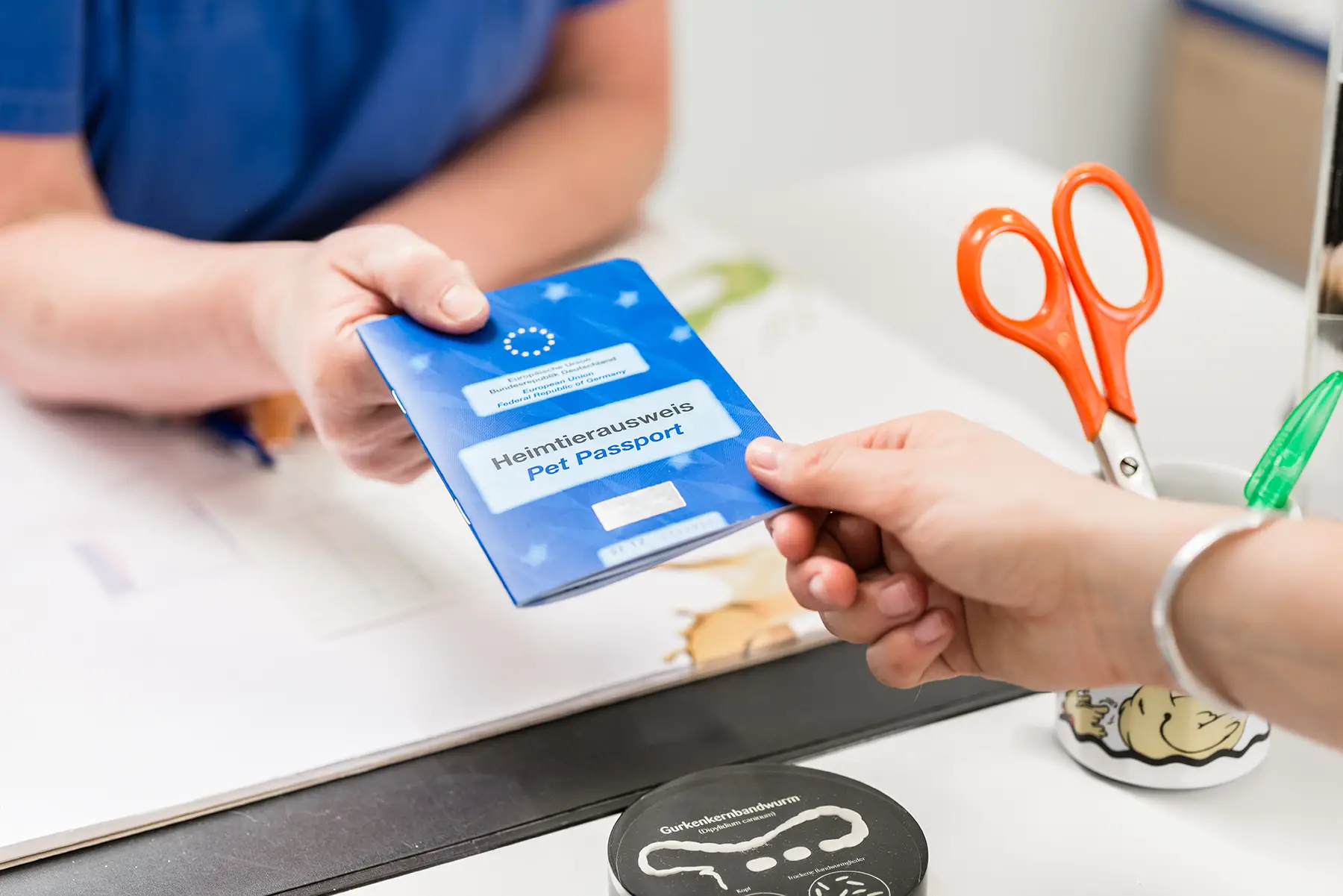
For those coming from the EU with a dog, cat, or ferret, an EU-issued pet passport is valid for entry into Great Britain. However, if you are coming from a non-EU country, you will need a GB health certificate, and you can download an application online.
An EU pet passport is valid for life as long as your rabies vaccination is up to date. It allows you to travel freely with your pet in the 27 EU countries. It must be issued by an authorized EU vet and can usually be obtained on the same day if it’s only for travel within the EU. Notably, your pet will also need to be microchipped.
Insurance for pets in the UK
While pets bring much joy and companionship, there is no doubt that they are a huge responsibility. Veterinary care is expensive in the UK and can set you back thousands. For this reason, many pet owners opt for insurance that covers them for unforeseen costs, such as illnesses or accidents.
Each insurance policy will differ and you will need to read what is covered under its terms. For example, some providers will cover euthanasia, while others won’t. The same goes for dental care. Most policies will start at a few pounds per month, depending on the breed, age, and type of animal. The premium will increase because of an animal’s age and its general health. One leading consumer website estimated that the average pet insurance premium was £154 per year in 2021, but this can also be significantly more.
Two of the most popular pet insurers in the UK are Pet Plan and Many Pets. You can visit their websites to get a quote.
Healthcare for pets in the UK
Veterinary services in the UK
Veterinarians provide a wide range of care, from dealing with road traffic accidents to general health checks and flea treatments. You should register your pet with a local vet as soon as you get it. You can use this vet directory to find a practice near you.
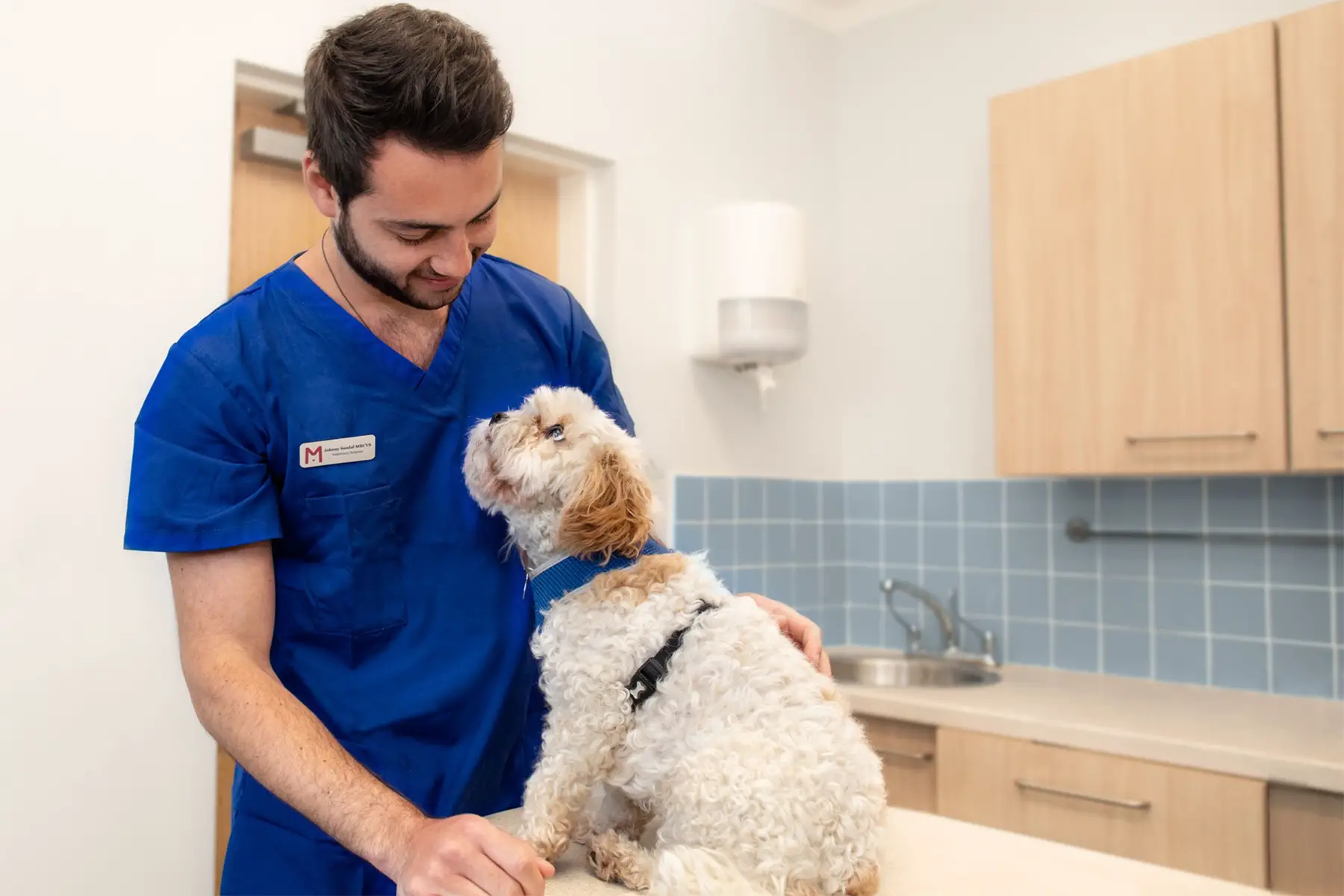
There are numerous options for accessing round-the-clock and emergency veterinary care. In the first instance, you should call your vet. Most practices offer some type of out-of-hours care in an emergency. With this in mind, it might be worth asking your vet for an emergency number in case you ever need it.
Some of the larger animal welfare organizations also offer emergency care. You can search for a local 24-hour clinic such as Medivet UK or Vets Now which have locations around the country. It is important to be aware that out-of-hours veterinary care will cost more, so don’t be afraid to ask for an estimate of the charges. You might also be able to get advice from a vet online.
Pet vaccinations in the UK
While you don’t legally need to vaccinate your pet, it is strongly advised that you follow a vaccination program that will help keep your pet healthy. There are core vaccines recommended for dogs and cats, as well as other small animals such as rabbits.
Most vaccinations need to be completed by the time an animal is a few weeks old, with a booster to follow. After that, there may be some vaccinations your pet will need as an adult. Your vet will be able to advise you. Costs can vary but organizations such as the RSPCA might be able to help with some of the vet bills if you are on a low income.
If you have bought a puppy or kitten through a breeder or pet store, they will usually have already sorted their early vaccinations and pet insurance covering the first few weeks after they are brought home.
Neutering and spaying
Once again, you don’t need to neuter or spay your animal by law, but the Royal Veterinary College advises you to do so. After all, there are many health benefits and it prevents unwanted pregnancies.
For dogs, it is recommended from the age of four months and will cost upwards of £150. For cats, it costs around £60 and up. Rabbits are also eligible for the procedure, and your vet will be able to advise you and schedule an appointment. It is a straightforward procedure and doesn’t normally require an overnight stay.
Pet shops in the UK
Pets are big business, so you can easily find pet shops in most urban and rural places. One of the biggest is Pets at Home, which has 450 locations nationwide and offers an online service. Pet Planet also has a large online store that offers everything from food and beds, to cages and crates. Most UK high streets will also have a pet shop, and vets will often sell popular products. You can use The Pets & Animals Directory to find a local pet supplier.
Services for pets in the UK
There’s no shortage of businesses that cater to the country’s pampered pets, offering everything from fancy grooming and pet portraits to doggy daycare. But as you would expect, the costs can rack up.
That said, for many people, demanding jobs no longer have to get in the way of owning a much-loved pooch. Doggy daycare has exploded and the options are numerous. In fact, according to one report from 2021, the UK is only behind the US when it comes to the number of places that offer doggy daycare. The average cost is close to £30 a day but can easily set you back more in expensive cities such as London. Certain conditions may also apply.

For instance, the award-winning Bruce’s Doggy Day Care, which has five centers in London and the home counties, requires owners to sign up for a minimum of two half-days a week and pay a fixed monthly fee. They must also give a month’s notice when canceling the agreement.
The same trend applies to dog walkers. The best way to find a local dog walker is to ask animal owners, search online, search Facebook groups, or use neighborhood classified ads. These services will cost roughly between £10 and £30 per hour.
Also this:
Going away on holiday? No problem. The best advice is to plan ahead if you are going to need a pet sitter. Cat lovers can use the popular Cat in a Flat to find a sitter local to them. Meanwhile, Barking Mad offers a similar service for dogs, and Rover caters to both. Luxury boarding options can cost from £40 per day and up.
To find a grooming service, you can search online for a place near you, ask friends for recommendations, or use social media. You can also just ask the owner of a dapper pet.
Lost pets in the UK
Sadly, thousands of pets go missing every year in the UK. Moreover, there has been a rise in people stealing pets, particularly dogs. In fact, evidence suggests that 2,000 dogs were stolen in 2020 as a result of their jump in value.
To give yourself the best chance of finding a pet, you can opt to register them with a national pet database. This will help locate your animal with a unique ID number. However, you don’t need to be registered to report a missing pet. And don’t forget that microchipping your pet will also help locate it.

There are also several organizations that can help if your beloved pet goes missing. These include some of the larger animal charities, as well as companies that are dedicated to finding animals. Two popular ones are Animal Search and Pets Reunited. These allow you to create an account and get alerted when an animal matching your pet’s description is found.
You should also make sure to use every resource available locally, including putting up flyers offering rewards. You can also sign up to neighborhood platforms like Nextdoor and use social media to your advantage. Local Facebook groups are particularly useful for finding animals. And finally, make sure to visit and call local shelters and vets near you, too.
PETA has also put together a guide to finding lost pets which provides some helpful tips.
The costs of keeping pets in the UK
The UK is an expensive place to live and keeping a pet is no exception. For instance, vet bills can easily run into the thousands depending on the type of treatment your pet needs, and insurance can be costly, too. Furthermore, dogs are generally more expensive than cats. Indeed, one pet insurer calculated that vet bills for a small dog can amount to nearly £2,000 for ligament damage. Meanwhile, the management of diabetes was over £1,200.
Veterinary practice in the UK is an open market, meaning that vets can charge whatever they want. Therefore, you may well find that one vet will be a lot more expensive than another, with postcodes playing a role in this too. With this in mind, it’s important to do your research and shop around before committing to one. And don’t be afraid to ask why a vet recommends certain procedures or treatments. In reality, sometimes they are good to have rather than must-haves.
To help reduce these costs, it’s important to keep your pet as healthy as possible. You can do this by making sure it has regular check-ups, keeping vaccinations up to date, and following an appropriate exercise routine.
Selling a pet in the UK
All breeders in the UK must have certificates proving the lineage of a certain animal and a license to sell pets. Therefore, you should be suspicious of someone who doesn’t have one. However, if you are selling an animal in your care, you don’t need this and won’t be required to prove anything. That said, if you claim that you are selling a certain breed, then you might need to provide documents to back this up.

You can advertise on many platforms including Nextdoor, Preloved, Gumtree, and Craigslist, and through social media. Just be aware that some people might question why you are putting a pet up for sale. Others, meanwhile, may believe that these types of sites exploit animals. Craigslist, for example, only allows you to advertise rehoming animals with a small adoption fee.
It’s also important to disclose whether the animal has any ongoing medical conditions and, if possible, ask the buyer for proof of address. If you would like to find out how to sell a pet responsibly, you can contact a local shelter or animal charity for guidance.
Useful resources
- GOV.UK – provides guidance on animal welfare legislation and rules
- RSPCA – the largest animal welfare charity in the UK
- PDSA – an organization that provides free vet services for sick or injured animals
- Royal Veterinary College – provides vet services and guidance on owning pets
- Dogs Trust – the UK’s largest dog welfare charity
- Cats Protection – the UK’s leading cat charity







